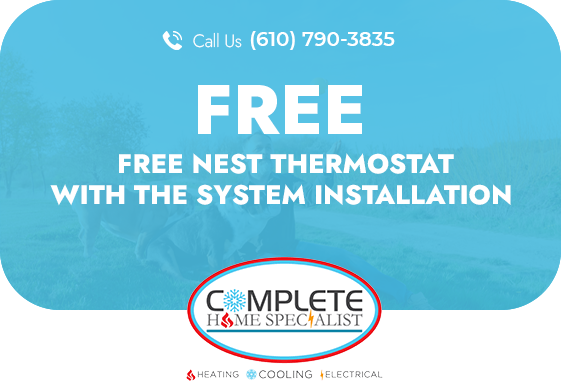Maintaining healthy indoor air quality (IAQ) is of utmost importance, especially as people spend a significant amount of time indoors. With rising concerns about pollutants and allergens negatively impacting IAQ, property owners have become increasingly focused on finding effective solutions. Ventilation plays a crucial role in this regard, as it helps to regulate air circulation, reduce pollutants, and maintain a comfortable environment in indoor spaces. The benefits of proper ventilation are numerous – from reducing energy costs to mitigating health risks associated with poor IAQ. Consequently, investing in a customized ventilation system can enhance the well-being and comfort of occupants residing in residential, light commercial, and new construction properties.
Understanding the Importance of Proper Ventilation
An efficient ventilation system is vital in promoting healthier indoor air and ensuring a comfortable environment for occupants of residential, light commercial, and new construction properties. Proper ventilation delivers several benefits, such as:
1. Improved Indoor Air Quality: Effective ventilation helps remove pollutants, allergens, and moisture from the indoor environment, resulting in cleaner, fresher air for occupants.
2. Moisture Control: Proper ventilation assists in regulating humidity levels, keeping your property free from mold and mildew growth.
3. Enhanced Comfort: A well-ventilated space is more comfortable due to better temperature and humidity control, and can reduce unpleasant odors.
4. Energy Efficiency: A well-planned ventilation system can improve your property’s energy efficiency by reducing the load on heating and cooling systems.
Exploring Various Types of Ventilation Systems
There is a wide range of ventilation systems available, each with its pros and cons. A few common types of ventilation systems include the following:
1. Natural Ventilation: Relying on passive methods to promote air circulation, natural ventilation utilizes strategically placed windows, vents, and openings in buildings. However, this method is usually not sufficient for maintaining optimal IAQ on its own.
2. Mechanical Ventilation: Mechanical systems employ fans, vents, and ductwork to control and move the air throughout the property. Mechanical ventilation can be further categorized as supply, exhaust, or balanced systems.\
3. Heat Recovery Ventilation (HRV) Systems: HRV systems transfer heat between the incoming fresh air and outgoing stale air to reduce heating and cooling system loads, providing energy savings while maintaining adequate ventilation.
4. Energy Recovery Ventilation (ERV) Systems: Similar to HRV systems, ERV systems also exchange energy between incoming and outgoing air. However, ERV systems transfer both heat and moisture, making them beneficial for moisture control in more humid environments.
Our Professionals’ Role in Choosing and Implementing Your Ventilation Solution
Our expert technicians are dedicated to helping you find the best ventilation system tailored to your specific needs. Here’s how our professionals support you throughout the process:
1. Property Assessment and Consultation: By examining your property’s size, layout, insulation, and existing HVAC system, our technicians can precisely identify your ventilation needs and suggest an appropriate solution.
2. System Selection: Based on the assessment, our professionals can recommend the most suitable ventilation system, taking into consideration factors such as property type, regional climate, and energy efficiency requirements.
3. Expert Installation: Professional installation by our qualified technicians ensures that your ventilation system operates efficiently and reliably.
4. Ongoing Maintenance: Regular maintenance and system check-ups by our experts are essential to preserve the effectiveness of your ventilation system and extend its lifespan.
Tips for Optimizing Your Ventilation System
To maximize the benefits of your ventilation system, consider these recommendations from our technicians:
1. Regular Maintenance: Keep your ventilation system in excellent condition through routine inspections and maintenance by our skilled technicians.
2. Air Filter Replacement: Regularly replace your HVAC system’s air filters to maintain efficient airflow and reduce strain on the ventilation system.
3. Seal Air Leaks: Inspect and repair air leaks in areas such as windows, doors, and ducts to help maintain consistent indoor air pressure and minimize drafts.
4. Opt for Energy-Efficient Ventilation Solutions: As technology evolves, consider upgrading to more energy-efficient systems like HRV or ERV to reduce energy consumption and save on utility bills.
Conclusion
A well-designed ventilation system is crucial in maintaining optimal indoor air quality in residential, light commercial, and new construction properties. By partnering with our professional technicians at Complete Home Specialist, you can benefit from personalized consultation, expert installation, and ongoing maintenance services, ensuring a healthy and comfortable indoor environment tailored to your space.
Don’t hesitate to reach out to our HVAC service in Allentown for more information on how we can help you implement the ideal ventilation solution for your property. Together, we can create comfortable, energy-efficient spaces that promote well-being and the health of your property’s occupants.







 Call Us
Call Us 



